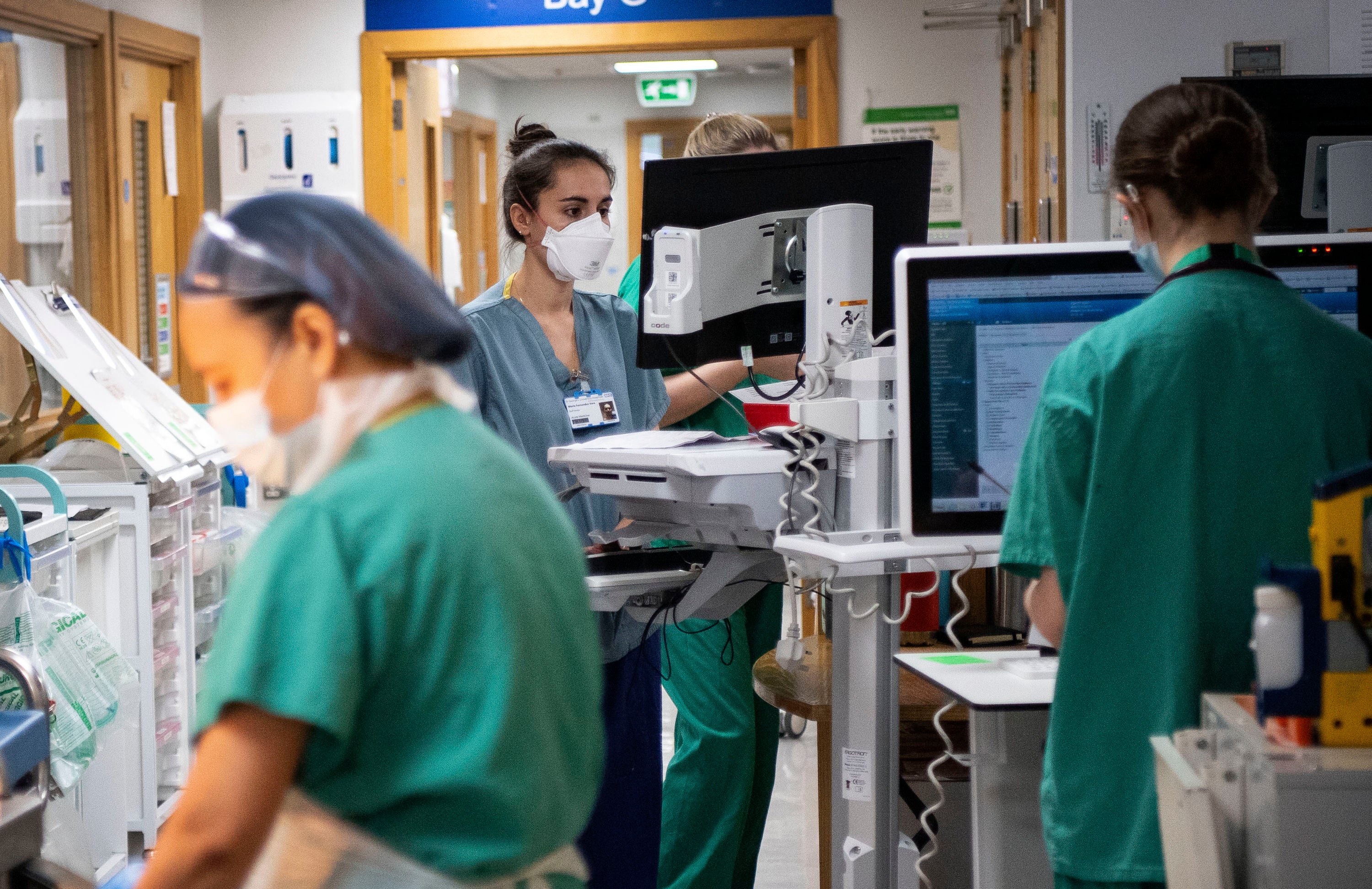Record numbers of students to train as next generation of nurses and doctors
Surge in university applicants will help ministers reach 50,000 nurses pledge

A record number of students are to study nursing at university after a surge in interest in NHS jobs following the Covid pandemic.
Latest data shows there has been an 8 per cent jump in accepted applications for nursing this year with a total of 26,730 nurses due to start training in the coming months.
This is the highest number of students accepted onto three-year nursing courses in any year during the past decade, and comes as ministers aim to boost nurse staffing levels in hospitals.
Boris Johnson has promised an extra 50,000 nurses will be working in the NHS by 2024, with the health service having 38,000 nurse vacancies during the pandemic.
In medicine and dentistry, the number of students is also up 16 per cent on 2020 to 11,220 – the highest for at least a decade. So many students have achieved their grades and been accepted onto medical courses that some medical schools are offering students £10,000 to move to another university.
In England, the number of students is up 12 per cent in a year with 20,930 accepted onto those courses at university, compared with 18,770 in 2020. This is 16 per cent up on 2016.
Nursing has traditionally attracted significant numbers of older, second-career students as well as college leavers, but this has seen a slump since nursing bursaries to fund training were scrapped in 2016.
The latest data from the Universities and Colleges Admissions Service (Ucas) shows the number of students above the age of 35 rising 5 per cent on 2020, while those aged 30 to 34 have increased 11 per cent.
The biggest rise is among 18-year-olds where there has been a 34 per cent jump since 2019, from 5,320 to 7,150. This is a 22 per cent rise on 2020.
However, the number of students coming to the UK from the EU has dropped 19 per cent, down to 230, while those from outside the EU are up 23 per cent to 260.
Nursing students spend half their course time on placements working on NHS wards and in the community. This is funded by the NHS which has already agreed an extra £25m for placements and simulation training this year, on top of its existing £180m budget.
Mark Radford, chief nurse of Health Education England, said: “I am really pleased to see the rise in applications for nursing courses, it is great that so many people are keen to pursue a career in nursing. We will work with universities to welcome and support the many thousands of new recruits to embark on this rewarding career.”
The Royal College of Nursing (RCN) said the record numbers did not necessarily lead to higher numbers of nurses in the NHS as many of the students won’t qualify until 2024.
RCN England director, Patricia Marquis, said: “There are already significant staff shortages in nursing and it is clear acceptance numbers are still not keeping pace with vacancies. Pressures of the pandemic have also left nursing staff exhausted. This not only puts patient care at risk but means students risk not completing their studies and entering the workforce.
“Ministers must reverse the 3 per cent pay deal if we are to discourage many from abandoning the profession, leaving future nurses without the expert teaching they need.”
Separately, NHS England has announced a £15m package to bring in 5,000 more healthcare assistant (HCA) roles for those considering leaving full time education.
HCAs don’t require any formal qualifications and help other clinical staff to carry out health checks, update patient records, help patients wash, dress and move around, and care for women and families in maternity services.
Speaking at a hospital in Milton Keynes earlier today, Amanda Pritchard, chief executive of NHS England, said: “Whether you want to study at university, or go straight into work, there are various routes into the NHS and with more than 350 different roles to choose from - including healthcare support workers, podiatrists, porters or midwives - there really is something for everyone.
"It is brilliant to see that a record number of people have applied for healthcare degrees and combined with this additional investment in even more new roles, we are strengthening the NHS workforce and building a strong future for the health service and for our patients.
“After the last 18 months, I’ve never been prouder to be a part of the NHS, so if you want to join us and make a difference to patients, please search NHS careers today.”
As the biggest employer in Europe and the fifth largest in the world, there are currently around 1.3 million people working in the NHS in England, including 150,000 doctors, 330,000 nurses and midwives and 70,000 allied health professionals.
Join our commenting forum
Join thought-provoking conversations, follow other Independent readers and see their replies
Comments
Bookmark popover
Removed from bookmarks